EDC study quantifies the impact of AI in region’s Life Sciences cluster
Today alongside underwriter Booz Allen Hamilton, San Diego Regional EDC released the fourth study in a series on the proliferation of Artificial Intelligence and Machine Learning (AI-ML) within San Diego County’s key economic clusters. “Diagnosing the Future: AI and San Diego’s Life Sciences Cluster” quantifies the economic impact of the region’s Life Sciences cluster and explores the proliferation of AI and ML technologies being used to diagnose disease and develop drugs, among other lifesaving products and solutions.
While the pandemic devastated many sectors of our economy, the Life Sciences cluster experienced a striking 11.2 percent job growth (51 percent over the last decade). The cluster boasts a $27 billion annual economic impact, with 1,800 Life Sciences firms employing more than 61,000 San Diegans—nearly three times as many Life Sciences jobs as the national average. Taking advantage of the region’s innovation ecosystem, San Diego’s Life Sciences cluster has increasingly integrated software and technology to maximize its impact, save time, and reduce costs.
Underwritten by Booz Allen Hamilton, the web-based study—lifesciences.sandiegoAI.org—includes company case studies on local use of AI-ML, San Diego’s standing relative to peer metros in AI-ML integration, a timeline on the history of Life Sciences in San Diego, and the business case for economic inclusion within the cluster, among other assessment.
“This series serves to spotlight the importance of AI-ML application within the region’s key industries, helping drive productivity, job growth, and scientific innovation here and around the globe. With so many Life Sciences companies yet to fully tap into AI-ML, the impact we are already seeing in San Diego is just beginning,” said Mark Cafferty, president and CEO, EDC. “As always, EDC is committed to helping these firms thrive, creating more quality jobs for San Diegans.”
KEY FINDINGS
- San Diego is a top Life Sciences growth market among AI-ML peer metros. The region has nearly three times as many Life Sciences jobs as the national average and commanded more than 13 percent of domestic venture funding into the industry in 2021.
- San Diego’s Life Sciences companies are in the early stages of AI-ML adoption, paving way for exponential impact. While several San Diego Life Sciences subindustries have leveraged AI-ML technology in significant ways, just 18 percent of local firms are engaging with AI-ML.
- San Diego Life Sciences companies have an outsized appetite for AI-ML talent but lag peer metros in accessibility and compensation. Local Life Sciences employers’ hiring for AI-ML talent largely demand post-secondary education but offer relatively low advertised compensation as compared to peer metros, which hinders the ability to compete for talent.
- San Diego’s AI-ML talent pool is active and growing. The region already has a strong and growing supply of more than 15,000 AI-ML professionals across all industries. Rising degree completions in interdisciplinary fields, alongside new programs dedicated to producing AI-ML talent promise to deepen the talent pool.
“Whether for venture capital investment, jobs, talent, or innovation, San Diego is an undeniable leader in Life Sciences—changing the way patients around the world experience healthcare,” said Jennie Brooks, Senior Vice President at Booz Allen Hamilton—board chair and underwriter of the EDC study series—and leader of the firm’s 1,200+ person San Diego office. “For less time and money, the integration of AI-ML can help firms further accelerate scientific discovery, but we need the talent to make it happen. While the Life Sciences proved resilient amid the pandemic, talent gaps are pervasive—with pay and access as the primary threats to our economic competitiveness.”
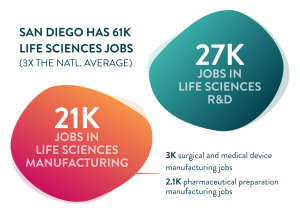 Life Sciences is an integral and rapidly growing piece of the San Diego regional economy. In 2021 alone, San Diego Life Sciences companies pulled in 13.1 percent of the $38.6 billion invested into Life Sciences nationwide. Supporting this growth, San Diego ranks fourth (4,300 in 2020) in Life Sciences degree completions among peer metros. Future and ongoing investment in Life Sciences companies and talent—most especially around compensation and accessibility—will ensure the longevity of this high impact industry and support its ability to compete.
Life Sciences is an integral and rapidly growing piece of the San Diego regional economy. In 2021 alone, San Diego Life Sciences companies pulled in 13.1 percent of the $38.6 billion invested into Life Sciences nationwide. Supporting this growth, San Diego ranks fourth (4,300 in 2020) in Life Sciences degree completions among peer metros. Future and ongoing investment in Life Sciences companies and talent—most especially around compensation and accessibility—will ensure the longevity of this high impact industry and support its ability to compete.
“Our Informatics and Predictive Sciences team in San Diego is deploying AI-ML to accelerate the drug discovery process. These approaches benefit virtually every aspect of drug discovery from accelerating the rate at which our chemistry teams can optimize compounds, to allowing us to better predict which patient populations are most likely to benefit from a novel medicine. The objective is to enable BMS to bring successful and safe medications to patients faster by leveraging AI-ML,” said Neil Bence, Ph.D., Vice President of Oncology Discovery and San Diego Site Head, Bristol Myers Squibb
The study series is underwritten by Booz Allen Hamilton and produced by San Diego Regional EDC. Learn more about EDC’s research here.
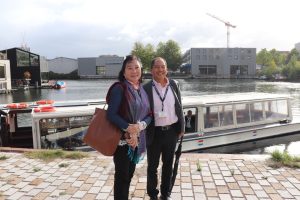
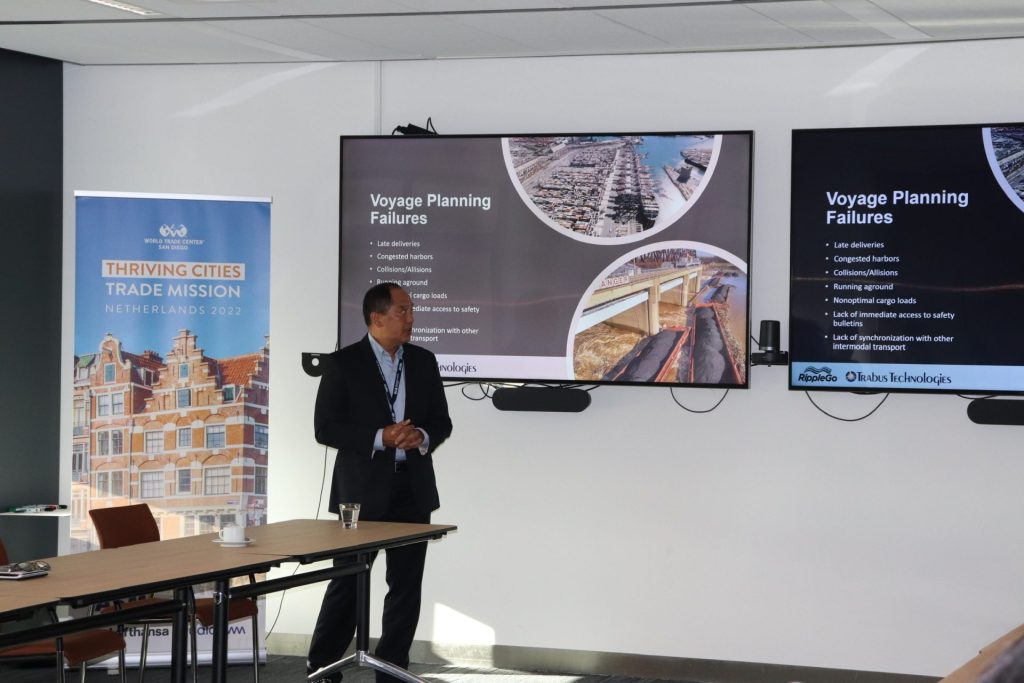
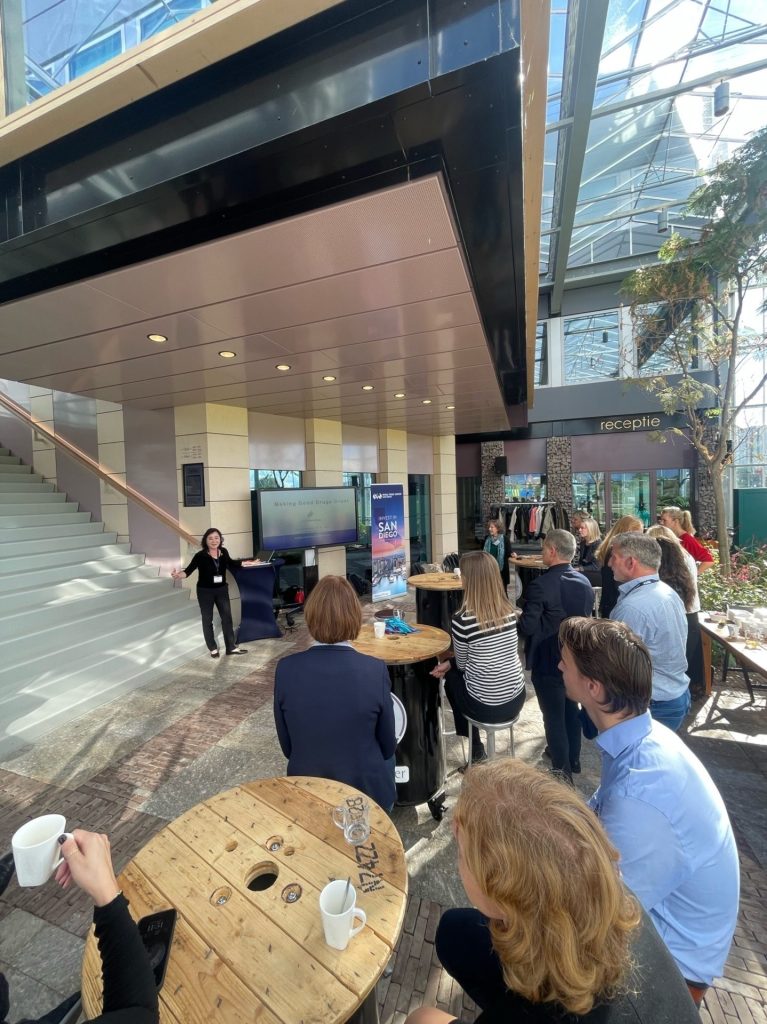
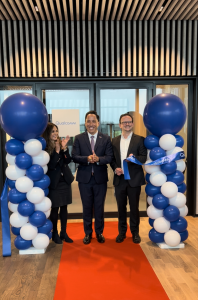
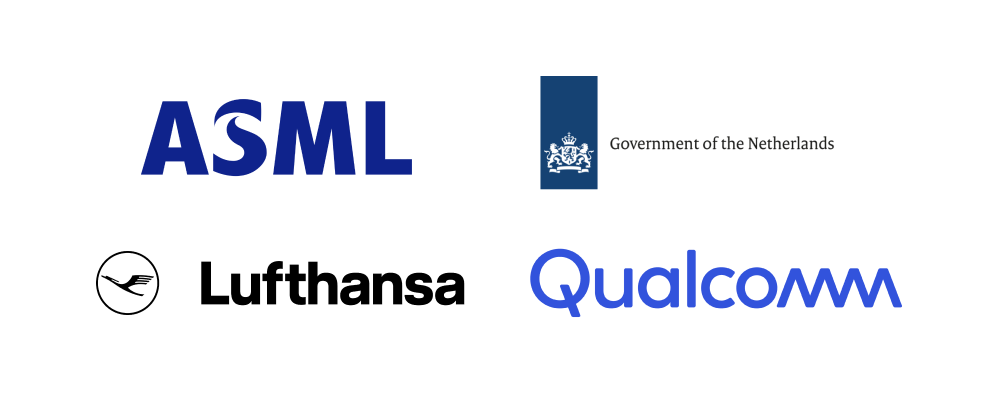
 “After five years on the board, I look forward to taking on this new role and working even more closely with EDC’s team. Our mission is to drive greater inclusion, resilience, and innovation across San Diego—aimed at empowering and supporting our region and its people,” said Jennie Brooks, Senior Vice President at Booz Allen Hamilton and leader of the firm’s regional office, which employees more than 1,200 San Diegans.
“After five years on the board, I look forward to taking on this new role and working even more closely with EDC’s team. Our mission is to drive greater inclusion, resilience, and innovation across San Diego—aimed at empowering and supporting our region and its people,” said Jennie Brooks, Senior Vice President at Booz Allen Hamilton and leader of the firm’s regional office, which employees more than 1,200 San Diegans. 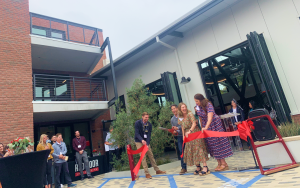
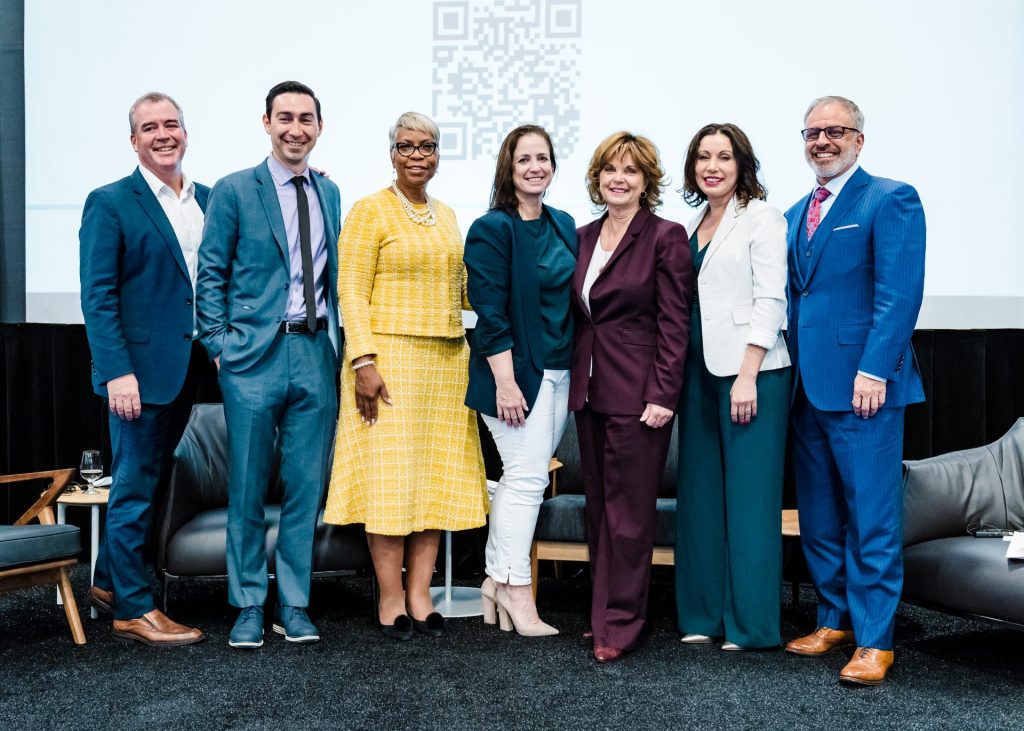 “EDC’s recent analysis underscores the significant impact of the pandemic on San Diego’s under-resourced communities and small businesses,” said Julian Parra, Business Banking Region Executive at Bank of America and EDC Board Chair. “To drive meaningful economic change, a diverse set of stakeholders must step up or the issues facing our economy—talent shortages, skills gaps, and a soaring cost of living—will further challenge San Diego’s economic competitiveness.”
“EDC’s recent analysis underscores the significant impact of the pandemic on San Diego’s under-resourced communities and small businesses,” said Julian Parra, Business Banking Region Executive at Bank of America and EDC Board Chair. “To drive meaningful economic change, a diverse set of stakeholders must step up or the issues facing our economy—talent shortages, skills gaps, and a soaring cost of living—will further challenge San Diego’s economic competitiveness.” “Employing more than 1,200 San Diegans, we understand the criticality of large employers fostering a robust talent pipeline who can afford to live and thrive here,” said
“Employing more than 1,200 San Diegans, we understand the criticality of large employers fostering a robust talent pipeline who can afford to live and thrive here,” said 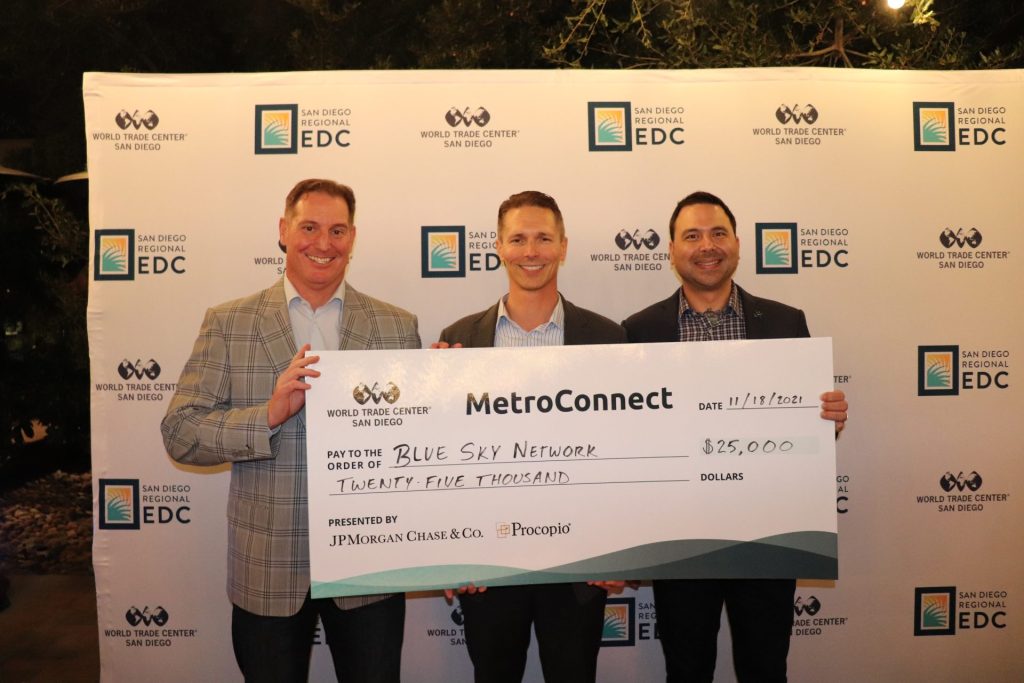 “Blue Sky Network is the perfect reflection of San Diego’s innovation economy coming together, leveraging our excellence in defense and technology now on an international stage,” said Lucas Coleman, senior manager at WTCSD. “The results from MetroConnect’s fifth cohort are impressive. Whether it’s alleviating supply chain processes in Australia or cultivating leads in Korea, Brazil and the UK amid incredible economic uncertainty, working to connect small and medium-sized businesses to international markets builds greater resilience here at home.”
“Blue Sky Network is the perfect reflection of San Diego’s innovation economy coming together, leveraging our excellence in defense and technology now on an international stage,” said Lucas Coleman, senior manager at WTCSD. “The results from MetroConnect’s fifth cohort are impressive. Whether it’s alleviating supply chain processes in Australia or cultivating leads in Korea, Brazil and the UK amid incredible economic uncertainty, working to connect small and medium-sized businesses to international markets builds greater resilience here at home.”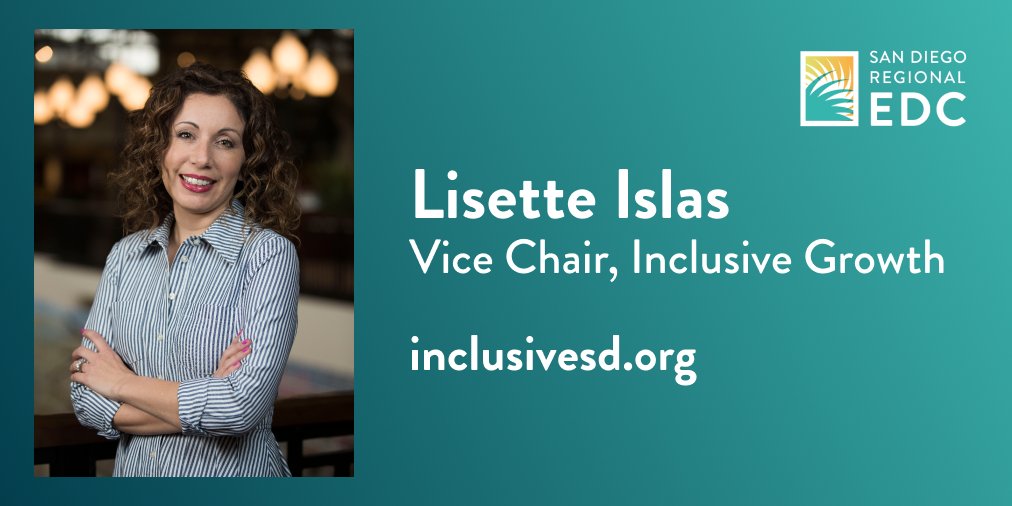 “Every crisis and recovery that the U.S. economy has endured has increased systemic poverty and widened inequalities in Black and Brown communities. As I take on this new role with EDC, I’m committed to working together with the region’s leading employers to get this recovery right. San Diego’s economic competitiveness depends on it,” said Lisette Islas, Vice Chair of Inclusive Growth, San Diego Regional EDC.
“Every crisis and recovery that the U.S. economy has endured has increased systemic poverty and widened inequalities in Black and Brown communities. As I take on this new role with EDC, I’m committed to working together with the region’s leading employers to get this recovery right. San Diego’s economic competitiveness depends on it,” said Lisette Islas, Vice Chair of Inclusive Growth, San Diego Regional EDC.